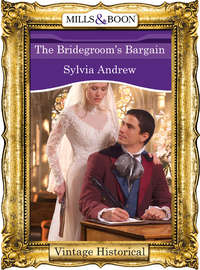
Полная версия
Regency High Society Vol 2: Sparhawk's Lady / The Earl's Intended Wife / Lord Calthorpe's Promise / The Society Catch
Chapter Eight

The setting sun washed red across the sloop’s sails as Caro sat perched on the coil of rope on the quarterdeck, her feet propped up on the empty hamper that had held their supper. Tomorrow she and Jeremiah would be at the mercy of the Raleigh’s cook, but tonight they had dined on the best that Desire’s kitchen could offer, and that, decided Caro contentedly, had been very good indeed.
It had taken all afternoon for the little sloop to weave in and out among the navy ships that crowded the harbor, slipping gracefully between seventy-four-gun men-o’-war that towered high above them, before at last she had reached the open water of the channel. There had been so much that was new to watch that Caro had loved every minute of it.
But to her great surprise, Jeremiah hadn’t. Oh, he’d stayed by her side and patiently answered all of her questions, but the distance she’d earlier sensed between them seemed to be growing into a gap she felt helpless to broach. He’d eaten little of dinner, though he’d drunk freely enough of the wine, and he’d resisted all of her attempts to coax him into speaking of himself.
She glanced at him now as he stood at the rail, his dark hair tossing in the wind off the water. She’d always considered him a handsome man in a wild, rough way that made him larger in spirit, as well as size, but since they’d reached the open water he’d seemed to become even less like the English gentlemen she knew and more of a man. He was so obviously in his world here, crossing the deck with the same physical ease as she would her drawing room, and he moved instinctively with the feel of the sloop on the waves beneath them.
Yet clearly Jeremiah wasn’t happy. She could see the sorrow in his face when he stared out across the water, withdrawing deep into some secret inner suffering brought on by the familiar sights and smells of the sea. Maybe it was being a passenger instead of a captain. He’d told her once he’d held his first command when he’d been only eighteen, on a ship that his family owned. How hard it must be for him now to stand by and watch with nothing more useful to do than shepherding her! Perhaps, then, what he needed wasn’t company, but the chance to be alone with his own thoughts. She had to remember that a man like Jeremiah Sparhawk wouldn’t feel the pain of loneliness the way she did.
She stood, steadying herself on the railing. “I’m going downstairs,” she said, slinging the basket over her other arm. “I’ll leave the lantern lit for you.”
He swung around to face her, his expression blacker than it had been all day. “It’s ‘below,’ not ‘downstairs’. And why the hell do you think I’ll need the lantern lit?”
“To see where you’re going, of course.” No matter how sad he was, he didn’t need to use that tone with her. “Though if you’d prefer to trip over your own belongings in the dark, why then, I’ll be sure to chink every glimmer of light before I go to bed.”
“It’s not a bed, it’s a bunk,” he growled. “This isn’t your precious Blackstone House, you know.”
“And you, sir, aren’t my husband to lecture me.” In the wind the veil spun up before her face and irritably she yanked it aside. “Good night.”
“Wait!” He grabbed her arm as she tried to pass him, pulling her close so he could speak for her ears only. “I am your husband, at least in the eyes of Captain Bertle and his men, if not God. Don’t make a mistake like that again.”
She glared at him. “What’s the point in pretending now that we’ve left Portsmouth? Why don’t we just go back to being who we are, with our real names?”
“Because if Bertle thinks we lied to him and we’re doing sinful things together under his deck, he’ll put us both off the first chance he gets, and I don’t have a great wish to be marooned in some blasted little Portegee fishing village.” He pulled her closer, so close his hair blew across her face. “Now I’m going to bend down and kiss your cheek for whoever’s watching, and I’ll thank you not to slap me.”
She closed her eyes as his lips brushed across her cheek, a kiss so cold it might have come from Captain Bertle. Maybe Jeremiah was strong enough to say one thing to her and then pretend otherwise before others, but she wasn’t, not about this. She felt close to tears, all pleasure in the day gone.
“Why are you doing this to me?” she asked, almost pleading. “I’ve done nothing to you, have I? I keep reminding myself that you’ve been kind to me before—look at how you agreed to come to Naples!—and that you will most likely be kind to me again, but now, now you’re making it very hard for me to even like you.”
“Then don’t,” he said sharply. “It will be easier on us both that way.”
She shook her head, not understanding. “How can that help anything?”
“Dear God, Caro, think!” He raked his fingers through his hair, clearly searching for the right words. “You’re trying to remember how I’ve been kind to you, and I’m trying not to forget that you’re another man’s wife!”
“But it’s not like that between you and me! I love Frederick too much to—”
She broke off, appalled by the longing she saw in his eyes, a longing that she realized echoed the one she felt within herself.
“Too much to do what, Caro?” asked Jeremiah harshly. “Too much to do what with me?”
Her face hot, she shook her head again, this time understanding too much. “What you want I will not give you. Even if I—I wished to, I could not, for it is not mine to give.”
He released her arm so swiftly that she had to grab on to the rail to steady herself. “By God, I’ve never forced any woman—especially a married woman—against her will, and I won’t—”
“You don’t understand!” she cried with anguish. “I mean my soul, my loyalty, who I am. That is what Frederick has given me with his love, and that is what I owe him in return.”
“You owe your husband your soul?” he demanded, incredulous. “You may have more in common with Captain Bertle than I realized.”
She couldn’t argue with him. She knew that no matter what she said he wouldn’t understand. “Why did you insist I come with you?”
“Why?” The single word hung between them, so much behind it that he couldn’t find the words to tell her.
Why? Because he would need her connections to arrange Davy’s release? Because she would suffer at George Stanhope’s hands without him to defend her, because she was too lonely, because the yearning she didn’t understand herself seemed to mirror his own? Because she needed him, because she gave him hope and faith in the future and himself?
All of these. None of these. Did he dare tell her the truth?
She stood very still, waiting.
“Because,” he said hoarsely, “because, God help me, I want to be there with you if Frederick is—”
“No, Jeremiah, don’t say it!” she cried. “I beg you, please, I—I hope you never have your blasted wish!” She turned swiftly and left him before he saw her tears, her black skirts swirling in the wind, black against the bloodred sky of the finished day.
Jeremiah stared out over the taffrail, watching the creamy wake the Raleigh left behind as she cut through the dark water. Over and over again this afternoon he’d caught himself gazing up at the sloop’s sails, gauging the wind and how he should trim the canvas or steer a bit closer, as if he were captain still. Better to look back to where they’d been, to something he couldn’t hope to change. A course once sailed could never be retraced, any more than the past itself could be relived or changed. So why, then, was he torturing himself with what he’d said to poor Caro?
Behind him he heard the bell that marked the end of one watch and the beginning of another. How long had he been standing here, anyway? Long enough for the sun to vanish and the moon to arc across the clear night sky, and long enough for his arms to become stiff as he leaned against the rail and for the cool air from the water to make the long scar beneath his ribs ache.
He had intended to remain on deck only long enough to give Caro time to undress and hide herself decently away in her bunk. And be asleep. If she were asleep, then he wouldn’t have to talk to her, or apologize, or do whatever other damned thing he should to set things right. How they’d manage the question of privacy had been something they should have discussed earlier, but he had kept putting it off, until now, after what they’d said this evening, any such discussions would be impossible.
Three weeks he’d be alone with her each night, three weeks they’d torture each other, whether they meant to or not.
He sighed, a sigh that stretched into a yawn. High time he went below and tried to sleep, or he’d be in an even worse humor in the morning.
“You’re still about then, Mr. Sparhawk?” asked Bertle as he came to stand beside Jeremiah. He cupped his hands to light his pipe, the spark flaring briefly across his full-cheeked face. “Mighty late for a stroll.”
“But a fair night for one.” Jeremiah didn’t welcome the other man’s company, but how could he decently object to Bertle walking his own quarterdeck?
“True enough, true enough.” Bertle sucked on his pipe, studying the sky intently. “You’re a seafaring man, ain’t you, Mr. Sparhawk?”
“I was once, aye,” said Jeremiah cautiously. “Not now.”
“Not now, maybe, but it never leaves your blood, or your legs. You can put on those fancy shore-going clothes and pretend you’re the same as any other lubber, but you won’t fool another sailor, no, you won’t.”
Jeremiah didn’t answer, offering no encouragement.
“You’re a Yankee, ain’t you, Mr. Sparhawk?”
“And you ask a lot of questions, Captain Bertle.”
Bertle shrugged. “Nothing uncivil about questions, Mr. Sparhawk. How can you learn about a man if you don’t ask him what he don’t give up himself?”
“You can ask away, Captain Bertle, but you might not hear what you want.”
Bertle peered at him shrewdly above his pipe. “So you’re still touchy after your skirmish with the missus, eh? I guessed things was still not what they ought if you was still here.”
Jeremiah’s brows dropped lower over his eyes, warning enough. “My wife’s no concern of yours, or any other man on board this sloop.”
“You keep it that way, Mr. Sparhawk. When she put aside that veil, why, she had half my men crazy in love with her right then and there.” Bertle sniffed and spat over the side. “She’s a handsome woman, your wife. Got breeding, don’t she? More’n you’d expect in some godforsaken Yankee jack’s wife.”
“You know, Bertle,” said Jeremiah so calmly that only a fool would mistake the current of violence that ran beneath it. “I could pitch you over the side and no one would ever be the wiser. A man gets to feeling sleepy during the dogwatch, the ship heels a bit, and he tumbles overboard in the dark. Happens all the time at sea. But you being a sailor and all, you’d know that, wouldn’t you?”
“Are you making threats against me?”
“Are you still asking questions?”
“The devil take you!” Angrily Bertle jerked the pipe from his mouth, using its stem to punctuate his words. “You can’t threaten an English captain, sir, and brag about it. One more time, sir, and I’ll have you put in irons below! Is that what you want?”
“Don’t try it,” said Jeremiah, “unless you mean to swim to Gibraltar. Good night, Captain Bertle.”
Caro had left the cabin door unlatched, and Jeremiah frowned and shook his head as he bolted it from the inside. He must warn her against that, especially if Bertle and the others were eyeing her like the white-belly sharks they were. He felt sure that the only reason one of them hadn’t tried her door already was that none had guessed she’d be so careless.
She had left the lantern lit as she’d promised, a single stubby candle swaying gently in its gimbal with the sloop’s motion. To his surprise she’d taken the top bunk, and at once he imagined what he’d see, lying below, whenever she climbed up or down, her skirts hiked far up her long legs. He almost groaned aloud. He’d just have to make sure he faced the bulkhead when he heard her stir. God help him, he was going to need the patience—and the purity—of a saint to survive this voyage.
Asleep, she lay curled on her side beneath a coverlet, one hand lying with the palm open beside her face. Her hair was loose and tangled about her shoulders and her lips were parted, and relaxed like this she looked both young and vulnerable.
How, he marveled, had she held onto that appealing innocence after living the life she did? He knew from how long she’d been married to Frederick that she must be close to thirty, but by the shifting candlelight she could have been ten years younger. With him it was the opposite. Experience and hard living had weathered him beyond his years, and some mornings he feared that the face he saw in the shaving mirror belonged to some old man he didn’t know.
She sighed and shifted in her sleep, and he caught a tantalizing hint of her scent, jasmine and musk. At Desire’s suggestion they traveled with their own linen, and Caro’s pillow slip was trimmed with elaborate cutwork lace that matched her pale, gossamer-fine hair. As incongruous as that pillow slip was against the rough pine bulkheads of the tiny cabin, Jeremiah was glad she’d brought it. Frederick was right: she didn’t belong in black.
Still watching her sleep, he shrugged his coat from his shoulders and unwrapped his neckcloth. Regardless of how she looked now, she really wasn’t as helpless as he’d first thought, and she probably didn’t need half the protection he was determined to give her. To confront him the way she had today took more courage than most men had. Certainly more than Bertle. Likely more than he himself. And that time when she’d spoken up before the lieutenant with the press-gang: he’d been too caught up in his own misery then to thank her the way he should have, but she’d fought like a terrier on his behalf. So much, he thought wryly, for the dainty, delicate Lady Byfield.
Shaking his head at how besotted he’d become, he climbed into the lower bunk, lying on top of the coverlet in his shirt and trousers. He didn’t know what she was wearing to bed, but he wasn’t going to tempt fate or himself by shedding any more clothes than he had to, at least not this first night.
Would Caro be tempted, too? The longing in her eyes had been unmistakable, and the way her lips had parted had begged for his kiss. Innocent though her face might be, she was a worldly, experienced woman. She’d know both how to please a man and how to be pleased in return, and he almost groaned aloud with frustration.
With his head pillowed in his hands, he closed his eyes and tried to forget the woman lying so close above him. Instead of the soft, measured rhythm of her breathing, he forced himself to listen to the sounds of a well-ordered ship: the thrumming of the wind through the standing rigging, the rush of the waves against the hull, the creaks and groans of the timbers and the calls of the men on the watch overhead.
The sounds were so familiar that he almost didn’t hear them, and gradually he let his body relax with the rocking of the ship’s motion. It had been so long since he’d been at sea, endless months landlocked in his sister’s house, and yet now he felt as if he’d never left.
He lay on his back, still comfortably full from dinner. Instead of the salt pork that had seen them clear across the Atlantic, there had been fresh meat, for this morning the cook had slaughtered the hog Jeremiah had bought for the crew when they’d touched briefly at Gibraltar. Because the meat wouldn’t keep in the hot Mediterranean sun, they had all eaten their fill, relishing the plenty after weeks of dwindling rations. Along with the pork had been bread, real bread, and not the dry, flat crackers that passed for it at sea, fresh green peas, sweet oranges, and a custard pudding made from cream and eggs.
Davy had joined him in his cabin, and together they’d drunk to the fastest passage they’d ever had between Providence and Marseilles. If this wind held steady, thought Jeremiah as he drifted off to sleep, they’d reach the French port by tomorrow evening, in time for him to call on that saucy little innkeeper’s daughter he’d met last year. Bernadette, or was the name Antoinette?
With a jolt he woke to the crack of splintering wood, then the crash of his cabin door as it gave way and slammed open against the bulkhead.
“What the hell—”
But the man was already on him, hurtling across the dark cabin like a huge cat to land on Jeremiah’s chest. He was nearly as large as Jeremiah himself, and he fought with the strength of one who relished killing. In the inky blackness of the moonless night, Jeremiah struggled for his life against an attacker he couldn’t see, only feel, pressing down on his heart and lungs like the darkness itself: muscles that were lean and hard, a stiff, curling beard, folds of rough linen that tangled around them like a woman’s gown.
And then Jeremiah felt the blade of the knife, cold and curving, pressed so close against his throat that each breath was a risk. On the deck overhead he heard running footsteps, a strangled cry of terror, and the guttural voices in a language that wasn’t his own.
“Ye bloody infidel,” said the man with the knife, breathing hard, his face so close to Jeremiah’s that he could feel the hot hatred on his skin. “Ye shall die like the other lowly swine ye slaughtered today.”
“Infidel be damned,” rasped Jeremiah. “You’re a bloody Scots pirate!”
“I am Hamil Al-Ameer, and praise Allah that ye have the chance to die in his name.” The knife pressed still closer into Jeremiah’s throat, and he knew then that the man was right, he would die. But he didn’t want to, not like this, not now, and he struggled vainly against Hamil and the darkness and the pain that seared like fire.
“Hush now, they can’t hurt you any longer,” murmured the woman’s voice. “You’re here with me, and you’re safe.”
Shaking and disoriented, he turned toward the sound of her voice. Kneeling beside him was a woman dressed all in white, bathed in soft light like an angel. Was he already dead then, beyond life and death?
“Jeremiah, look at me.” Her voice was gentle but firm. “Look at me, darling. See? It’s Caro. Whatever happened is done, and you’re here with me.”
“Caro?” He searched her face desperately, his breathing still ragged and his voice trembling as he fought for his own sanity. “Caro, you don’t know what I did, what happened.”
She saw the terror grow again in his eyes as the nightmare returned and swiftly she put her hand to his cheek, determined not to lose him. “What was your mother’s name, Jeremiah?”
He turned his head away, confused. “Mama?”
“You all lived together on the farm on the island, didn’t you, Jeremiah?” she said softly, coaxing him to trade the terror for happier memories. She wasn’t sure it would work, but she wasn’t going to sit by and let him drop back into the black torment again without trying. “Your Mama and your father and your little sister Desire?”
“No.” He covered his eyes with his hands and the deep, shuddering sigh that racked his body was almost a sob.
She leaned closer, her voice more urgent. “I know you remember the farm, Jeremiah. The grand house on the hill near the water? You told me before it was the grandest house in the colony when you lived there.”
“But not with Mama.” He took his hands from his eyes, stretching his arms out over his head, and for a long time stared, without seeing, at the rough planks of the bunk above him. “Father took us to live with Granmam and Granfer at Crescent Hill after she died.”
“Oh, Jeremiah, I’m sorry!” She’d meant to turn his mind down more pleasant paths, not to this.
“At least she didn’t live to see what the British did to Newport during the war. She died soon after Obadiah was born, from the fever, I think.”
“I didn’t know you had a brother.”
“I don’t, at least not anymore.” His voice was flat, wrung clear of emotion, but at least the blind panic had left his eyes and his breathing had slowed. “The English killed Obie, just as they killed my father. They’re all dead now. Desire and I are the only ones left. And, of course, the children she has with Jack, though because of him they’ll be raised English, not American. In England there’s more to being the son of a lord than a Sparhawk.”
His regret touched her. “You never thought to marry and have children yourself?”
“Never found a woman mad enough to take me.” He sighed and tapped his fingers against the bulkhead. “My mother’s name was Elizabeth Pattison Sparhawk. She had red-gold hair and clapped her hands when she laughed.”
“She laughed often?” asked Caro wistfully.
“All the time when Father was home. She loved him, said Granmam, as much as any woman could. He wept at Mama’s burying, the only time I ever saw him do it.”
He rolled over onto his side, propping his head on his elbow to look at her. He was, she knew, trying very hard to look as if nothing had happened, as if his face weren’t still pale and lined with suffering, and though she’d never humiliate him by saying so, her heart went out to him for wanting so badly to hide his weakness from her.
“But here I am babbling about myself as if it’s the word from the mountain,” he said. “What’s more boring than another family’s history?”
“Oh, but it’s not boring at all!” Suddenly conscious of being in her nightgown, Caro sat back on her heels and tugged the fabric modestly over her knees. “I have no family of my own, you know. Orphans don’t.”
He raised one brow in question. “Someone raised you on that Hampshire farm.”
“Not my mother,” she said, and quickly looked away. “She died when I was quite young, just as yours did. I can scarcely remember her at all.”
Jeremiah knew she was lying, and too late he remembered what his sister had told him of Caro’s mother. If the old gossip was true, then it wasn’t that Caro had forgotten her mother. Instead, he guessed, she remembered too much.
He reached out and gently took her hand in his, lifting her fingers to his lips. “What a pair we are, eh, Caro?” he said wearily. “Both of us plagued by a past that cannot be undone.”
“What a pair, aye,” she whispered with an infinite sadness beyond tears. She slipped her hand free of his and rose, glancing over her shoulder at the lantern. Though she did not move herself, the shadows from the lantern swinging back and forth made crazy patterns across her fine-boned face. “Will it trouble you if I keep the lantern lit? All the sounds of a strange place make me uneasy in the dark.”
“No, sweetheart, it won’t trouble me at all,” he said softly. “Whatever you please.”
The swinging light caught and framed her smile, a glimpse of bittersweet empathy for him alone. For him, from her. And he knew then, as somehow he’d always known, that she was the only woman he would ever love.
Alone in his cabin, Bertle grumbled angrily to himself as he refilled the battered pewter tankard with rum and lime water. He should never have agreed to have the woman on board, no matter how much gold the husband had flashed in his eye. Since Eve in the garden, women had brought nothing but sorrow and grief and discontent to mankind, and this pretty little chit with the silver-blond hair and bullyboy husband were no different than the rest. Damned impudent bastard, challenging him like that on his own quarterdeck like some Yankee fighting cock in spurs!
Muttering another oath, Bertle reached into the tankard, fished out a lime slice between his thumb and forefinger, and lowered it carefully into his mouth. Sucking noisily, he pulled the heavy leather mail pouch from his sea chest and dumped the contents onto his desk.
The letters slipped and scattered like a little drift of snow, and with both hands Bertle sorted through them. The smallest ones, addressed in dainty hands and reeking of scent, would be from ladies to their sweethearts, mostly sailors serving in the English ships stationed at Naples, and Bertle put them aside. Later in the voyage, when he needed amusement, he might turn to them; some of those dainty ladies wrote the most lubricious love letters imaginable.








